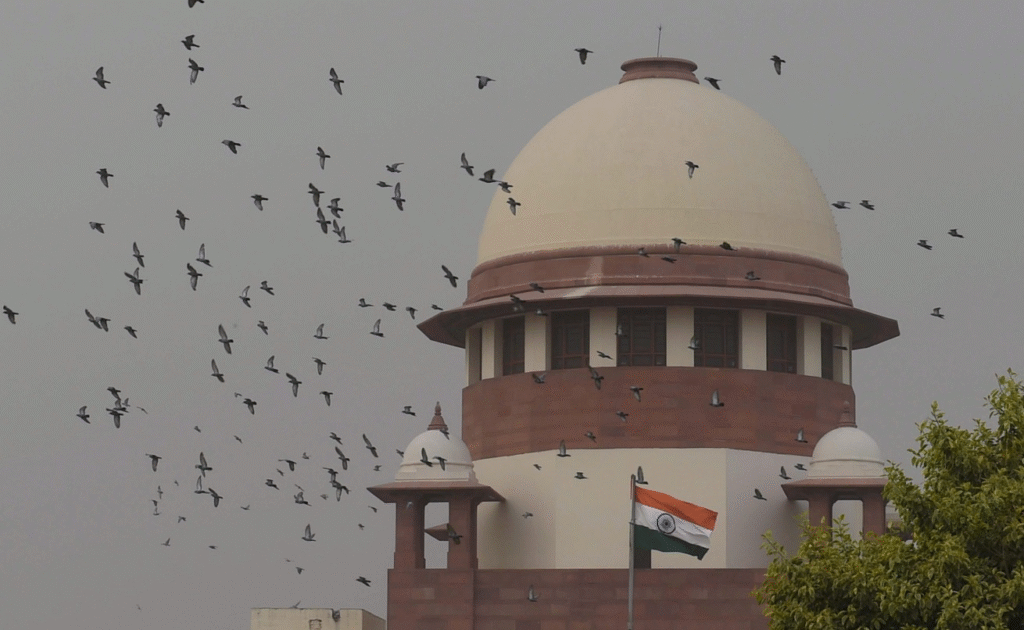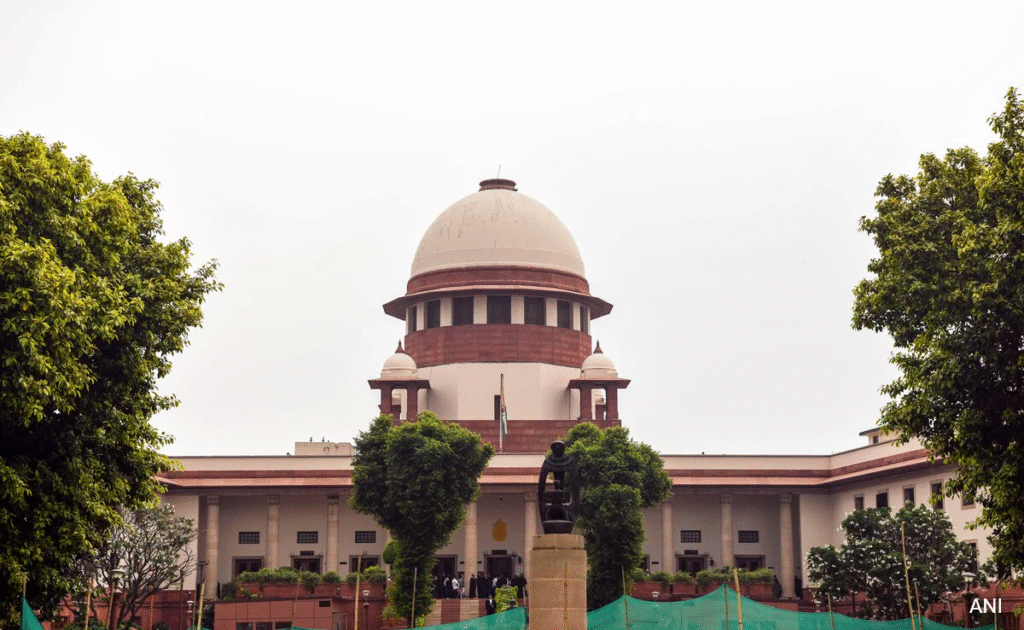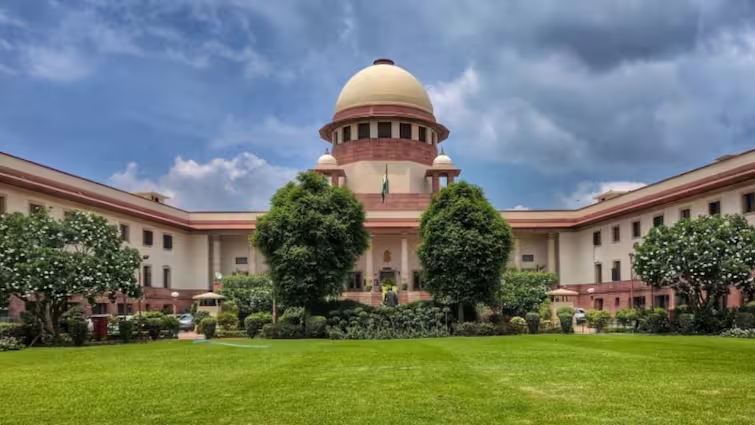
The Supreme Court of India recently heard arguments on the Waqf Amendment Bill, marking a significant juncture in the governance of waqf properties and their place in both Indian law and Islamic tradition. The Centre’s submission that waqf is an Islamic concept but not an essential part of Islam has generated extensive debate among religious scholars, legal experts, and policymakers. This detailed exploration delves into the nuances of the government’s position, its implications on religious freedom, and the socio-legal challenges surrounding waqf management in India.
The Historical and Religious Significance of Waqf in Islam and India
To comprehend the ongoing legal discourse, one must first understand what waqf entails. The term “waqf” originates from Arabic, meaning to “stop” or “conserve.” It is an Islamic philanthropic practice where a person endows property or assets permanently for religious or charitable purposes. The waqf institution has a profound legacy within Islamic societies worldwide, serving as a key instrument for social welfare, religious activities, education, and healthcare.
Historically, waqf properties in India have included mosques, madrassas, burial grounds, hospitals, and educational institutions. These endowments have supported the socio-cultural infrastructure of Muslim communities for centuries. Under Muslim rulers, waqf was closely integrated into governance systems, with appointed caretakers overseeing the properties in line with Shariah law.
The British colonial regime introduced legal frameworks to regulate waqf, motivated by administrative control and revenue interests. Post-independence India inherited a complex mosaic of waqf properties, governed by the Waqf Act of 1954. This Act sought to protect waqf assets and formalize their management through state waqf boards. However, over the decades, challenges such as lack of transparency, illegal encroachments, and misappropriation have plagued waqf administration.
The Centre’s Stand Before the Supreme Court: A Constitutional and Religious Perspective
The recent statement by the Solicitor General during Supreme Court proceedings crystallizes the government’s legal rationale. The Centre contends that waqf, while deeply rooted in Islamic tradition, is not an essential religious practice under Islam. This subtle but important distinction allows the state to regulate waqf properties without infringing on constitutional guarantees of religious freedom.
The Indian Constitution under Article 25 grants freedom to profess, practice, and propagate religion but also permits the state to regulate secular aspects of religious practice in the interest of public order, morality, and health. The Centre’s argument leans heavily on this principle, asserting that waqf governance falls within the purview of secular regulation.
By classifying waqf as a non-essential religious institution, the government justifies the Waqf Amendment Bill, which enhances state oversight, strengthens penalties against fraud, and introduces stricter mechanisms for protection and management of waqf assets.
The Waqf Amendment Bill: A Step Towards Transparency and Accountability
The Waqf Amendment Bill represents the government’s attempt to address persistent issues related to waqf mismanagement. Critics of waqf governance have long pointed to corruption, illegal sale of waqf land, and lack of proper record-keeping as factors undermining the institution’s integrity.
The amendment bill seeks to:
- Strengthen the authority of the Central Waqf Council.
- Improve digitization and transparency of waqf records.
- Enhance punitive measures against encroachments and illegal transactions.
- Streamline dispute resolution mechanisms involving waqf properties.
These reforms aim to safeguard the immense social and economic value of waqf lands, estimated to be spread over millions of acres in India. The bill’s proponents argue that such reforms will protect community interests and uphold the religious intent behind waqf endowments.
Diverse Perspectives Within the Muslim Community
The Centre’s stance and the proposed amendments have triggered diverse responses from within the Muslim community. For many religious scholars and community leaders, waqf represents a sacred trust, a vital link to religious and cultural identity. They often see state intervention as an infringement on religious autonomy and fear that excessive government control may dilute community agency.
Some Islamic jurists contest the Centre’s view that waqf is not “essential” to Islam, citing classical fiqh texts that regard waqf as a commendable, religiously mandated charitable act with divine reward. This difference in interpretation fuels apprehensions that the amendments could lead to restrictions on religious freedoms.
Conversely, progressive voices within the community acknowledge the need for reform to address the misuse of waqf properties. They emphasize the necessity of transparent governance to protect waqf assets from being exploited or alienated, which ultimately harms the beneficiaries — often marginalized groups relying on these charitable endowments.
The Role of the Supreme Court: Balancing Religious Rights and State Authority
The Supreme Court’s role in this matter is critical as it must weigh constitutional protections of religious freedom against the legitimate interests of the state to regulate and safeguard community resources.
Indian courts have historically maintained that “essential religious practices” receive absolute protection, whereas other religious activities and institutions can be regulated to ensure compliance with public welfare norms. The Court’s task is to decide whether waqf administration qualifies as essential or non-essential to Islam.
Legal precedents indicate that courts have upheld state authority to regulate waqf properties, especially where mismanagement has harmed public interest. The current hearings will likely reaffirm this jurisprudence, setting important benchmarks for religious endowment governance.
Socio-Economic Importance of Waqf Assets in India
Waqf properties hold not only religious significance but also substantial socio-economic value. These lands and assets support a broad range of community services, including education, healthcare, social welfare, and religious functions.
Studies estimate that waqf properties in India cover millions of acres, generating significant economic activity and providing livelihoods to thousands. Proper management of these properties can facilitate community development, empower disadvantaged groups, and contribute to local economies.
However, when waqf assets fall prey to illegal sales, encroachments, or administrative lapses, the consequences are dire. Not only do they lead to financial losses, but they also erode community trust in religious institutions and hinder social progress.
Administrative Challenges in Waqf Governance

Despite the legislative framework, waqf boards face several operational challenges. Many state waqf boards suffer from insufficient staffing, lack of technical expertise, and political interference, which impede effective administration.
Moreover, the multiplicity of waqf boards and overlapping jurisdictions between state and central authorities often cause coordination problems. Digitization efforts are underway but remain unevenly implemented across states.
These administrative hurdles complicate enforcement of the Waqf Amendment Bill’s provisions, demanding sustained capacity building, funding, and political will.
Comparative Perspectives: Waqf Governance in Other Countries
Looking beyond India, waqf institutions operate in many Muslim-majority countries, each with different regulatory models.
For example, in countries like Turkey and Egypt, waqf properties are managed by specialized government bodies with varying degrees of autonomy. Some countries combine religious oversight with stringent state regulation to balance tradition and accountability.
These international experiences highlight that waqf governance requires context-specific solutions, often blending religious principles with modern administrative practices.
India’s unique socio-political context demands a tailored approach that respects constitutional secularism and religious pluralism while ensuring effective management.
The Larger Debate on Religion, State, and Secularism in India
The controversy over waqf reform feeds into a broader national conversation about the relationship between religion and state in India’s secular democracy.
The Indian Constitution upholds the right to freedom of religion but also mandates state intervention when religious practices conflict with public order or welfare. This dual commitment creates inherent tensions, particularly with religious institutions holding vast community resources.
Waqf reform is emblematic of this tension — the state’s desire to regulate for the public good versus religious communities’ wish for autonomy. Finding equilibrium between these competing interests remains a defining challenge of Indian secularism.
The Path Forward: Dialogue, Trust, and Collaborative Governance
For waqf reform to succeed, the government must engage meaningfully with Muslim community leaders, scholars, and civil society organizations. Building trust is crucial to overcoming fears of government overreach.
Collaborative governance models that include community participation alongside state oversight can strike a balance, ensuring accountability without compromising religious identity.
Transparent processes, grievance redressal mechanisms, and education campaigns can help dispel misunderstandings and garner broad-based support for reforms.
The judiciary also plays an essential role in interpreting constitutional protections while endorsing necessary regulations that serve public interest.
Conclusion: Towards a Balanced and Inclusive Future for Waqf Governance
The Supreme Court hearings on the Waqf Amendment Bill spotlight a critical juncture in Indian jurisprudence and society. The Centre’s position that waqf is an Islamic but non-essential religious institution provides legal grounds for reform aimed at better governance, transparency, and protection of community assets.
However, the issue transcends legal technicalities — it touches upon religious identity, community empowerment, and constitutional values. Successfully reforming waqf governance will require sensitivity, inclusiveness, and a shared commitment to the welfare of Muslim communities and Indian society at large.
As the country moves forward, the evolving legal and social framework surrounding waqf will shape not only the future of religious endowments but also the broader narrative of how India reconciles its religious diversity with democratic governance.

